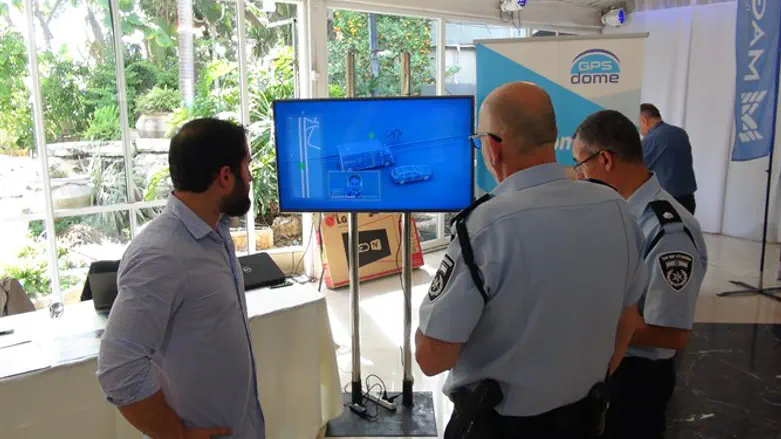
Then, about the same time in early August 2019, the US military warned ships passing through the Straits of Hormuz that Iran was GPS spoofing ships into their waters to commandeer them. To add to the mix, on June 20, 2019, there was apparent confusion about exactly where the $280 Million Dollar American Global Hawk drone was shot down.

Could Iran be GPS spoofing the newest quarter-of-a-billion hi-tech American military drone GPS system? Very possibly.  Could Iran be GPS spoofing the newest quarter-of-a-billion hi-tech American military drone GPS system? Very possibly.
Could Iran be GPS spoofing the newest quarter-of-a-billion hi-tech American military drone GPS system? Very possibly.
And, if, in 2019, Iran is able to GPS spoof American hardened military GPS systems, any American attack against Iran may face serious targeting problems. In short, as “the Robot” in “Lost In Space,” the 60’s campy TV show, would say: 'Danger Will Robinson, watch out for an Iranian/Russian military GPS trick that could seriously degrade or neuter any American first strike.'
Such an Iranian GPS spoofing would not only seriously degrade Tomahawk strikes, but could also put precious infiltrated American special forces soldiers at extremely high risk. Hence, great care, tactics, and surprise must precede any possible American attack on Iran.
There have been warnings that this is in the cards:
The CSM article went on to state:“"The GPS navigation is the weakest point," the Iranian engineer told the Monitor, giving the most detailed description yet published of Iran's "electronic ambush" of the highly classified US drone. "By putting noise [jamming] on the communications, you force the bird into autopilot. This is where the bird loses its brain." The “spoofing” technique that the Iranians used – which took into account precise landing altitudes, as well as latitudinal and longitudinal data – made the drone “land on its own where we wanted it to, without having to crack the remote-control signals and communications” from the US control center, says the [Iranian] engineer.”
The CSM article went on further: “Western military experts and a number of published papers on GPS spoofing indicate that the scenario described by the Iranian engineer is plausible."
Even modern combat-grade GPS [is] very susceptible” to manipulation, says former US Navy electronic warfare specialist Robert Densmore, adding that it is “certainly possible” to recalibrate the GPS on a drone so that it flies on a different course. “I wouldn't say it's easy, but the technology is there.””
If the Iranians were able to spoof an American Sentinel UAV in 2011, before it had reverse engineered the American GPS systems on its UAVs, then, in 2019, it’s very likely the Iranians still have the ability to hijack the newer American models that were engineered to be more hardened against GPS-spoofing and signal jamming.
Even though the general did not directly say Moscow was behind the operations, according to experts, it is only Russia that has advanced capabilities to successfully carry out such interference in Syria. What if it was not only the Russians who were GPS spoofing American forces but also Iran? What if Russian Electronic warfare experts shared its Syrian electronic warfare successes with Iranian experts? The bottom line is tha there is enough anti-American GPS spoofing “smoke” to question any American military plan that relies on GPS for its targeting- specifically any attack on Iran.
Tomahawks also are equipped to Digital Scene Matching Area Correlation that compares the “scene” of the target and enables the Tomahawk to home in on what the final target looks like. But this technology really relies on the Tomahawk getting to its final destination first, where the Scene Matching technology then takes over and refines for the the final descent and attack. But, what if the Tomahawk’s GPS is thrown way-off by Iran, and the Tomahawk’s Terrain contour matching can’t get enough of a “match” because it is flying north-eastward over a matchless and impossibly flat Persian Gulf water?
There are sufficient grave warning signs of Iranian prowess in electronic warfare and GPS spoofing. That means that great care, redundancy planning, changes in early attack tactics, and intelligence have to be perfected by American forces before any Iranian attack is initiated.